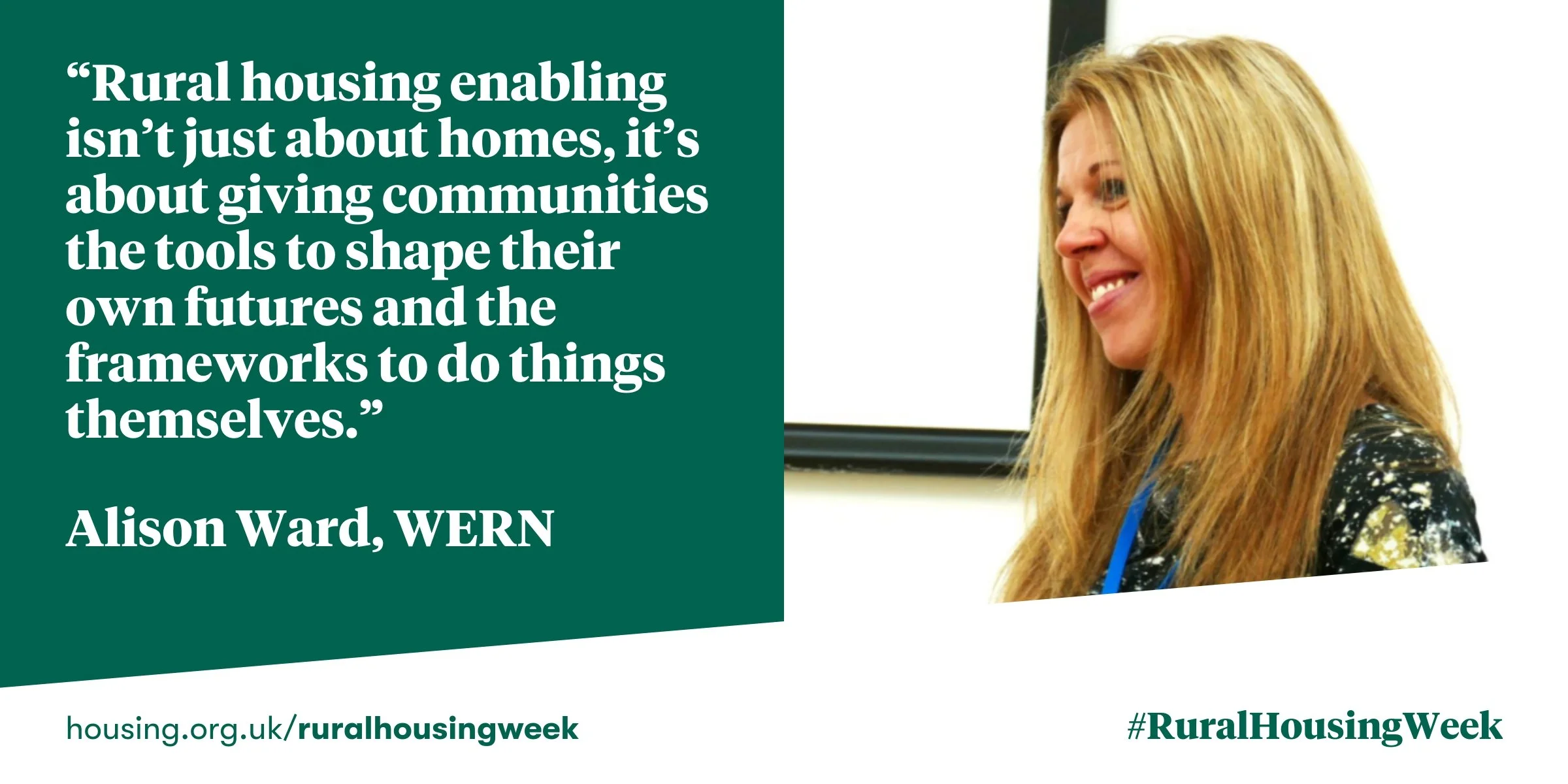Listening first: supporting rural communities to unlock affordable housing
Alison Ward, WERN’s Rural Housing Enabler blogs for #RuralHousingWeek about her experience of working with communities locally to help them secure developments suitable to their needs
Over the past year, I’ve been working alongside rural communities across the West of England to help them explore whether securing a small scheme of affordable homes for people with a connection to the local area is something they would like to do. These conversations often begin in village halls, community centres or over Zoom, with a mix of curiosity, scepticism, and deep concern for the future of local life.
My role is to showcase what can be achieved, be a sounding board for ideas, offer practical advice and put groups in contact with others who can make things happen. I’ve supported Parish Councils to get a better understanding of local housing need, advised them on navigating the planning system, talked to community members about how they could form a Community Land Trust (CLT) and discussed connecting them with housing association partners. But at its core, this work is about building trust.
Many rural communities have told me about speculative development they feel powerless to shape and express concerns that this offers little or no benefit to local people and that their community is being taken advantage of. When I help groups understand how they can lead the process - from identifying a site to setting priorities for who the homes are for - something shifts. I find that people in villages and towns understand that change is inevitable, and that they are not anti-development when development is on their own terms and for the benefit of local people.
In villages like Marshfield in South Gloucestershire local people are developing community led homes. Residents have set up Marshfield Community Land Trust and are currently on site developing a scheme of 15 affordable homes for local people in the village. They heard directly from young families, single parents, older residents wanting to downsize - people who grew up locally or have longstanding ties to the village but can’t afford to stay. Development is no longer “something done to us,” but has become something the community can do for itself.
One parish in Bath and North East Somerset, where the initial view was "we don’t know if we have a housing need," is now moving towards site identification after the results of a housing needs survey commissioned with our support showed that a small scheme of affordable homes for local people could make a big difference. Small village schemes of 10-12 homes won’t solve the housing crisis in one go, but the impact for that village can be great: contributing to retaining the local primary school, keeping the shop open, enabling care to be provided locally. It’s about sustaining the fabric of community life.
This work is slow and patient. It doesn’t always fit into traditional funding cycles or established ways of delivering new developments. For example, rural affordable housing is very often delivered on what is known as rural exception sites. This is land that wouldn’t usually be given planning permission but where exception is made for small schemes that prioritise affordable housing for local people. These sites are often considered tricky to develop and wouldn’t usually be financially viable for a developer interested in turning a profit. But communities are not interested in profit - they want homes in the right place, that look in keeping with their surroundings, and are always kept affordable.
Securing more community-led schemes like this is vital. National research highlights that the need for affordable housing is nearly 50% higher in rural England than in urban areas, with rural communities requiring 16.8 affordable homes per 1,000 households annually compared to just 11.0 in urban areas. It explains why many people in villages and towns recognise that an acute shortage of genuinely affordable homes is hollowing out their community. But what I have seen in my work as a Rural Housing Enabler is that most see value in regaining control and developing solutions that work for their locality.
More than anything, I know there’s benefit in having more of these conversations locally. When communities feel listened to and heard, they’re far more open to solutions. And when they feel they have agency, they become powerful advocates for change.
Rural housing enabling isn’t just about homes, it’s about giving communities the tools to shape their own futures and the frameworks to do things themselves.
If you would like to have a conversation about rural housing in your community, please contact me: alison.ward@middlemarchclh.co.uk; 07779 302557.

